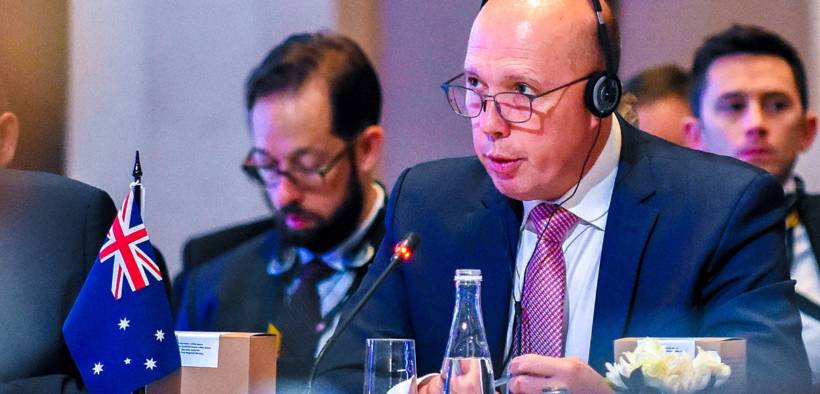Australia Attempts to Beef Up Surveillance State

“[The] ASIO bill amendment [is] one more step towards a totalitarian state.”
On Wednesday, the Australian government put forward a bill in parliament to give more power to the Australian Security Intelligence Organisation (ASIO) including questioning children starting at the age of 14.
The bill would also expand the security group’s power and access to tracking devices.
Across the world, citizens have largely agreed to massive limitations on personal liberty in an attempt to curb the threat of coronavirus. But activists and privacy experts are beginning to worry that governments will take advantage of the current uncertainty to increase their spying capabilities.
In Australia, ASIO’s current powers are set to expire in September, increasing the government’s urgency to reaffirm and deepen its power.
Australia’s Home Affairs Minister Peter Dutton has regularly pushed for broader surveillance powers, including joining an agreement with the US and UK that would allow Australia to tap citizens’ phones while they are abroad.
Pauline Wright, president of the Law Council of Australia wrote in The Guardian, “this is not a bill to be rushed and hurried through the parliament. To do so would be detrimental to all Australians.”
Surveillance State
The right-wing government’s justification for decreasing the age at which minors can be questioned is the 2015 murder of an unarmed police civilian finance worker, Curtis Cheng.
Already some statements have shown that the opposing Labor Party may agree to the new bill. Labor MP Mark Dreyfus said, “it’s well-known that some of these terrorist groups prey on younger people, horribly influence younger people to participate in their terror activities.” He also added that the bill should face intense scrutiny.
One of the more prescient criticisms from the opposition is that 14-year-olds and other teenagers often lack an understanding of the consequences of their actions.
“Young people go through a significant development between those ages generally, understanding of consequences grows even in that short space of time,” Wright said.
The bill also faces some opposition from politicians. Senator Nick McKim, a member of the Australian Greens, said, “Australia is already a police state, and Peter Dutton is frogmarching this country down the road to a surveillance state.” He also added that he thought the government was taking advantage of the pandemic.
Australia has been building a more robust surveillance apparatus with large additional powers granted in 2014 and 2018.
Press freedom has also been under attack with several high-profile cases of police raids, including a raid on the house of a political reporter for the state-owned Australian Broadcasting Company. Reporters Without Borders downgraded Australia’s press freedom score in recent years due to increased state surveillance and media monopolization.
Worldwide Phenomenon
Australia is not the only country in the world that has seen increased state surveillance coinciding at a time of public health crisis. An amendment to the Patriot Act that would restrict police from monitoring citizen’s browser history without a warrant failed to garner enough votes with ‘No’ votes from Republicans and Democrats.
The bipartisan support for the United State’s security apparatus is similar to Australia’s struggle to oppose security state expansion.
From Hungary to South Korea, coronavirus-related security concerns are growing as governments’ scramble to respond to the deadly spread of the coronavirus. But, the trend to a growing security state apparatus is not a new one, and the newest crises may spur on further security powers.
Australian ABC journalist Peter Cronau tweeted, “ASIO bill amendment [is] one more step towards a totalitarian state.”
In the US much of the focus is on protests resisting lockdown orders, and while Australia has seemed to spread the control of coronavirus, the state can turn its attention to other matters. One of which seems to be giving police more unchecked power in the name of counterterrorism.















